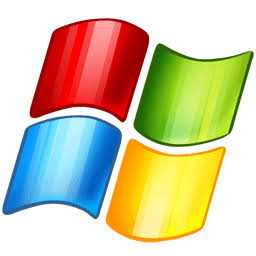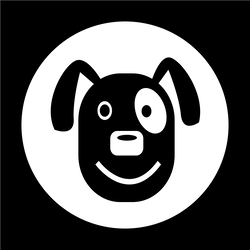I’m bored and want to practice my Rust skills. I am the creator of open-tv. If you have any idea for a linux desktop app, even if it seems quite complex, I will take it.
The world needs the ability to sync freetube and newpipe. It’s the missing link for both Apps, to be usable from home, to out and about
I agree, but I think something is already in the works, I’ll check and probably make something practical to sync the two. It’s not really a new app that’s needed but a feature integrated into freetube/newpipe
An app that tracks how much time you spend using each app. Locally obviously. I want this information so I can see how much I should donate to each project each quarter.
This. This is a hole in the market I think.
Windows used to have a similar hidden feature that my friend used all the time to tracking his work projects, but they removed it some time ago.
This is a good idea. It could even be later expanded to a sort of “digital wellbeing” type use case with time limits or reminders on certain apps, etc…
Make an app that is a little ASCII potted plant in your terminal and every time you type something it waters the plant and it grows
When nothing happens for too long, the plant withers and starts losing leaves. For each leaf that falls, a random file is deleted in /sbin.
An open-source Resilio Sync alternative (not syncthing) that centers around the folder represented by unique hash, without any device management
a 🔥blazingly fast🔥 voxel based open world RPG with soulslike and medroidvania elements
Or maybe a 100% science-based dragon MMO?
A Linux implementation of Microsoft’s Powertoys. Having all those utility features in one app would be great.
Could be a decent idea
Obsidian 1:1 open source alternative.
LogSeq doesn’t do it for you?
nope, logseq is good for canvas and new knowledge base, but doesn’t fit for the my existing datalog requirements.
The mention of datalog confuses me. I know it as a programming language. Does it mean something else for you? And what do you mean by “canvas”? I know about painting on a canvas and similar usages as well as the verb “canvassing” for soliciting for votes.
Not the programming language, datalog here is referring to highly interlinked knowledge base,
canvas is logseq whiteboard version of Obsidian, like for mind map or creating data flow/logic diagrams.
I would kill for this. Trying to get logseq, or any other markdown editor to play nice with an existing obsidian vault is a nightmare. And none of them are nearly as feature complete or expandable.
unrestrictive nature of Obsidian is simply top notch.
Is this sarcasm, or did you not understand their comment?
I was talking about the community extension integration, now about editors, I was easily able to switch between them. The one I was having the most difficulty with was Logseq."
Maybe meta, but a linux installer for windows that works just like a normal installer on windows. You download the
.exe, double click it, it opens a wizard you can walk though, and by the end of the process, after it reboots, you’re in a linux distro.You know what, it could also be for linux, when I think about it… not everybody wants to write on a flash drive, reboot, run through installation, reboot.
The original idea is that non-technical users don’t know what an “OS” is. They might search for “windows alternative”, “windows replacement”, “linux installer” (if they heard of linux), and so on without knowing it’s an OS. If they could download something that installed “the linux app” without having to know about partitions, flashing a USB stick, MBR vs UEFI, distros, etc. it could make things much much easier.
- distro: which flavor of linux would you like (as stable as possible)? gaming (bazzite), productivity (ubuntu), bleeding edge (debian sid?), design, development, expert, security, …
- desktop environment: look and feel? more like MacOS (gnome), more like windows 7,8,10 (KDE), more like XP (LXDE, LXQt), Windows 98 feel (XfCE, …)
- probably other things, but maybe that’s all non-techies care about
The installer could have warnings for configurations e.g “you have an NVIDIA card $model, this has known issues with your display manager (Wayland), would you like to select automatic fix?”.
Idea 1
I’ve been looking for a journal/to-do/checklist app that isn’t completely thumb chewing stupid. I’ve yet to find anything as good, flexible and feature complete as what you’d get on PalmOS devices in the early 2000s.
I often use my journal for brainstorming and planning, and basically the best I can do is bulleted lists. I would like a checklist section that can do things like recurring tasks, one-off tasks, daily tasks, and persistent tasks. (Daily tasks: Feed cat. Each day it puts a task with that name in the Tasks window for you to check off. Persistent tasks: Fix the kitchen drawer. This same task remains in the Tasks window until it is checked off, and then stops appearing.) I would also like “take 5 loads of yard debris to the road 0/5” and be able to click to advance it to 1/5. Marry this with a journal app so that you can keep track of progress on stuff like fitness goals or whatever.
And please. Even if it is stored as human-readable markup, please. PLEASE. Let the user edit it in rich text mode. Too many of the “journal” apps out there require you to edit in markdown mode and then you can switch to a “view” mode to see what you’ve done. Also: Don’t be that guy whose app cannot be themed. I don’t want some light mode Gnome lookin’ bullshit in the middle of my dark mode Cinnamon.
Idea 2
Do a fully local fitness tracker. Apple/Google/Samsung health apps are there primarily to invade your privacy and no one should ever use them. I get that this one is more useful as a mobile app running on a device with MEMS sensors, possibly rigged to a smart watch with biometric sensors, and there is no such thing operational in the GNU/Linux world, but still it might get some use.
Idea 3
You asked for it: Woodworking CAD. This “seems quite complex.” The best workflow I can find is in FreeCAD, which is too complex and cumbersome for the job. It’s a general purpose engineering CAD system and it’s designed to work in abstract absolutes; you can’t think in terms of “put a mortise and tenon joint here” you have to think “create a sketch on this face and constrain a rectangle to this edge with these dimensions.” And then it doesn’t give you things like automatic cut schedules, materials lists, templates. FreeCAD is allegedly extensible, it is allegedly possible to create your own workbench to add more specific features. I even tried. There is no documentation, they didn’t write down what they were doing as they were doing it, so…I’m not sure why they bother at this point.
I’ve been interested in a CAD package that works the way a woodworker works. I’ve thought about trying to implement this in the Godot game engine, but even then the project strikes me as “monumental.”
Item1: I would love something along these lines. Honestly, I wish I could configure Thunderbird to be my journal and reference my to-do items programmatically from inside journal entries.
Similar to your wish for first class dark mode, I want light mode to also be first class. Too many apps lately have made dark mode default and the light mode is unusable.
I’m starting to think, especially with high contrast and high brightness flat panels, having working light and dark modes are an accessibility feature. Apparently folks with bad astigmatism or some other such struggle with light text on a dark background? Me I’m just very light sensitive and a modern LED backlit monitor showing large areas of white is physically uncomfortable for me to look at.
I am one of those gifted folks that enjoy astigmatism. I have tried dark mode and dark themes many times over the years and it just doesn’t work for me. The screenshots are gorgeous tho!
A music player for Jellyfin (that support SyncPlay)
doesn’t that exist already? I could swear I saw at least 2 on flathub
Voice assistant that allows to perform common tasks like setting up calendar events, sending emails, opening apps, etc. Bonus points for “connect to server abc” and the assistant would open the terminal and ssh to abc server.
I’d like to see a simple, dependency-free, calculator app, written in Rust, using egui. All other GUI calculator apps I’ve seen so far are unnecessarily heavy, using bloated toolkits like GTK or Qt.
This would be handy for those run a GTK/Qt-free environment, and/or those who just want a tiny calculator app (optimised for the smallest binary size) without any external dependencies. Preferably even compiled using musl, to remove any glibc dependencies - resulting in a simple, small, portable binary that can run on any distro and doesn’t even need to be installed.
Eventually, I would like to see this idea expanded to other apps - such as a simple text editor, a simple image editor, and maybe even a simple and lightweight web browser using Servo.
How are Gtk and Qt bloated?
How about a Lemmy Client?
Fragmentation has entered the chat
I simply would like to have a non-browser based Lemmy Client. :/













